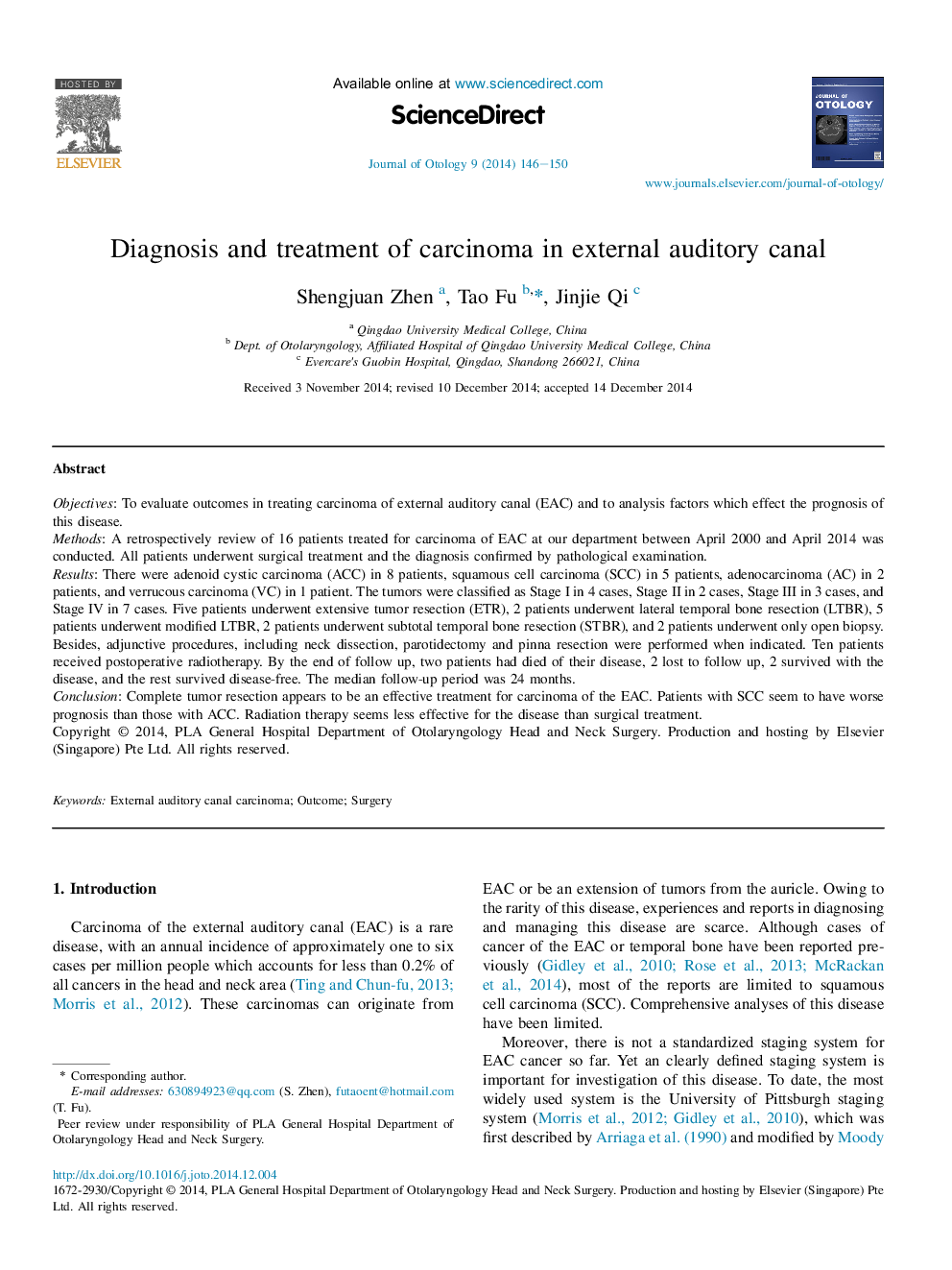| Article ID | Journal | Published Year | Pages | File Type |
|---|---|---|---|---|
| 4116708 | Journal of Otology | 2014 | 5 Pages |
ObjectivesTo evaluate outcomes in treating carcinoma of external auditory canal (EAC) and to analysis factors which effect the prognosis of this disease.MethodsA retrospectively review of 16 patients treated for carcinoma of EAC at our department between April 2000 and April 2014 was conducted. All patients underwent surgical treatment and the diagnosis confirmed by pathological examination.ResultsThere were adenoid cystic carcinoma (ACC) in 8 patients, squamous cell carcinoma (SCC) in 5 patients, adenocarcinoma (AC) in 2 patients, and verrucous carcinoma (VC) in 1 patient. The tumors were classified as Stage I in 4 cases, Stage II in 2 cases, Stage III in 3 cases, and Stage IV in 7 cases. Five patients underwent extensive tumor resection (ETR), 2 patients underwent lateral temporal bone resection (LTBR), 5 patients underwent modified LTBR, 2 patients underwent subtotal temporal bone resection (STBR), and 2 patients underwent only open biopsy. Besides, adjunctive procedures, including neck dissection, parotidectomy and pinna resection were performed when indicated. Ten patients received postoperative radiotherapy. By the end of follow up, two patients had died of their disease, 2 lost to follow up, 2 survived with the disease, and the rest survived disease-free. The median follow-up period was 24 months.ConclusionComplete tumor resection appears to be an effective treatment for carcinoma of the EAC. Patients with SCC seem to have worse prognosis than those with ACC. Radiation therapy seems less effective for the disease than surgical treatment.
